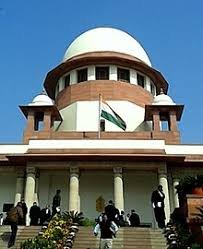The case concerns Ms. Mepung Tadar Bage (referred to as “Respondent”), a Member of the Arunachal Pradesh Public Service Commission (APPSC), appointed on August 13, 2021.
The core issue originated from the leakage of question papers for the Assistant Engineer (Civil) Mains Examination, conducted by the APPSC on August 26th and 27th, 2022.
Following a complaint, the APPSC cancelled the examinations and the matter was transferred to the Special Investigation Cell (Vigilance) (SIC) and later to the Central Bureau of Investigation (CBI).
A three-member High-level Inquiry Committee was constituted by the Government of Arunachal Pradesh to probe irregularities in the Mains Examination.
The Inquiry Committee submitted its report on October 06, 2022, pointing out lapses in the Standard Operating Procedure (SOP) and concluding that the SOP and the APPSC Conduct of Examination Guidelines, 2017 (“2017 Guidelines”), had not been followed by the APPSC.
The Chairman of APPSC resigned on moral grounds.
The Hon’ble Governor of Arunachal Pradesh requested the Hon’ble Chief Minister to place the matter before the Hon’ble President of India for making a reference under Article 317(1) for the removal of four APPSC members, including the Respondent.
The President of India made a reference to the Supreme Court for the removal of the Respondent on April 18, 2023.
The Respondent was suspended on June 15, 2023.
The reference focused on whether the Respondent’s conduct constituted “misbehaviour” under Article 317 of the Constitution.
Law Involved:
Article 317(1) of the Constitution of India governs the removal of the Chairman or any other member of a Public Service Commission (PSC) from office on the ground of “misbehaviour.” The process involves a reference by the President of India to the Supreme Court for an inquiry.
The Constitution Framers recognized the prominence of Civil Services and the need to safeguard PSC officers from political pressure and public expectations, leading to the establishment of autonomous and independent bodies.
The term “misbehaviour” in Article 317 has been subject to judicial interpretation, drawing from precedents under Article 124(4) which defines misbehaviour for Judges.
“Misbehaviour” is defined as “ill conduct; improper or unlawful behaviour” or “a transgression of some established and definite rule of action, a forbidden act”. It denotes actions that would “destroy the faith in a public office”.
It requires specific, demonstrable acts or omissions that betray public trust and are “unimpeachable in the eyes of law”.
The Court highlighted that for a PSC member, expected standards of behaviour are natural and are elevated by the very nature of the institution they represent.
The concept of “collective responsibility” was also considered, primarily in the context of the Cabinet, where Ministers are jointly accountable for government policies and actions. The Court explored its applicability to a constitutional body like a PSC.
Reasoning:
The Court carefully examined the six charges leveled against the Respondent, based on the Inquiry Committee’s report and subsequent investigations.
Regarding the question paper leakage (Charge No. I): The Inquiry Committee report did not attribute any specific act or omission by the Respondent as constituting misbehaviour. While the Respondent was involved in paper setting and other examination processes, the evidence did not show her failure in preventing leakage or ensuring confidentiality. The Court found no evidence to prove her individual responsibility for the leakage.
Regarding previous leakages (Charge No. II): The Respondent joined APPSC after the alleged leakages in 2017. No specific allegation against her linked to these previous incidents after her joining was found.
Regarding the “2022 Guidelines” and the 2017 Guidelines (Charges No. III & V): These charges related to the draft “2022 Guidelines” and the keeping of “2017 Guidelines” in abeyance. The Court noted that the “2022 Guidelines” were kept in abeyance by “common consensus of the Chairman and Members of the APPSC”. The Inquiry Committee found no deliberative act by the Respondent. The Court emphasized that institutional failure cannot be attributed to an individual in an institutional setting if there is collective duty.
Regarding allocation of legal work and revision of guidelines (Charge No. IV): The Respondent was allocated legal work, which included the duty to revise the 2017 Guidelines. While she failed to perform this duty, the Court clarified that this was an institutional failure and not solely attributable to her individual capacity to initiate new guidelines. The Inquiry Committee did not find any specific act or omission by her constituting misbehaviour in this regard.
The Court elaborated on “collective responsibility”, noting that while PSCs are constitutional bodies with collective functions, it is distinct from the Cabinet’s collective responsibility. It held that an individual member cannot be held liable in their individual capacity for the entire Commission’s responsibilities, particularly for institutional failures or lack of clear guidelines for individual duties.
The Court found that no cogent material or evidence was presented to substantiate the allegations of misbehaviour against Ms. Mepung Tadar Bage. Her actions did not meet the high threshold of “misbehaviour” required for removal under Article 317(1).
Holding:
The Supreme Court concluded that the charges alleged against Ms. Mepung Tadar Bage were not proven and, therefore, her conduct did not constitute “misbehaviour” within the meaning of Article 317(1) of the Constitution of India.
The Court recommended that the Hon’ble President of India revoke her suspension forthwith.
Furthermore, it recommended that she be entitled to all consequential and monetary benefits.
Re: Mepung Tadar Bage, Member, Arunachal Pradesh Public Service Commission
Supreme Court: 2025 INSC 1047 (DoJ 28-08-2025)






